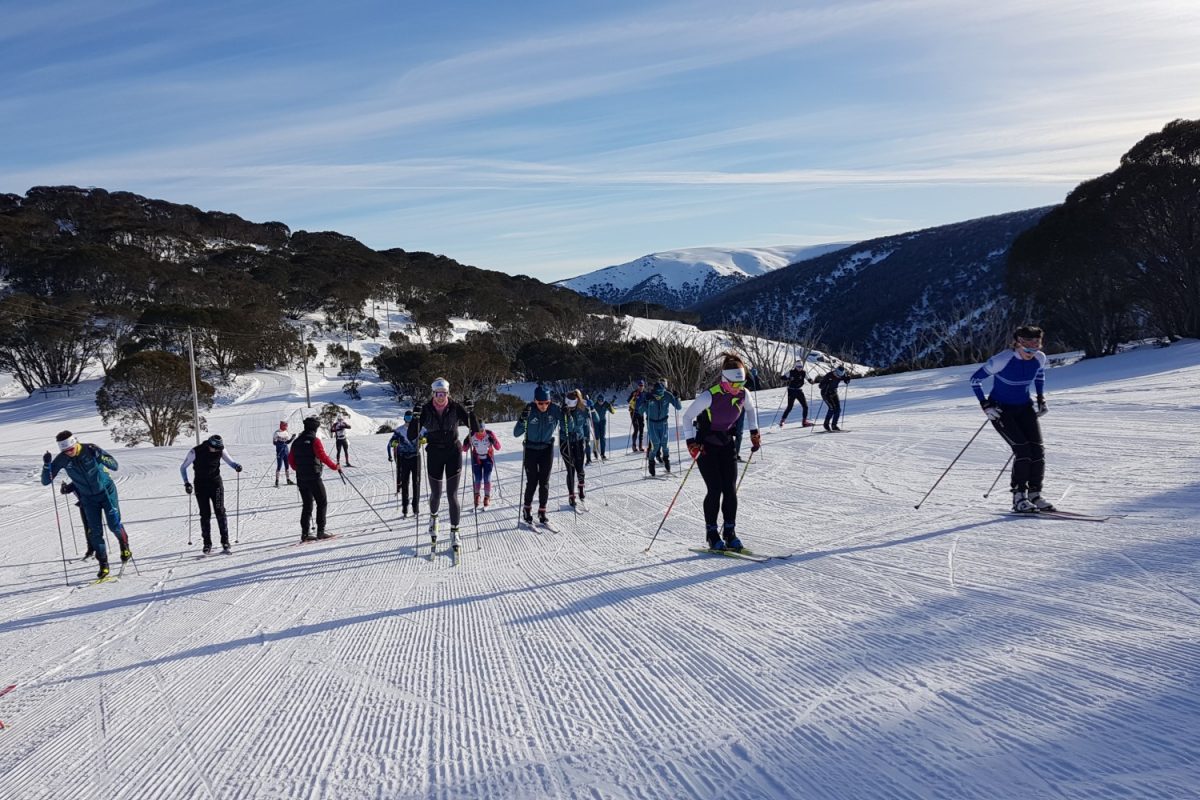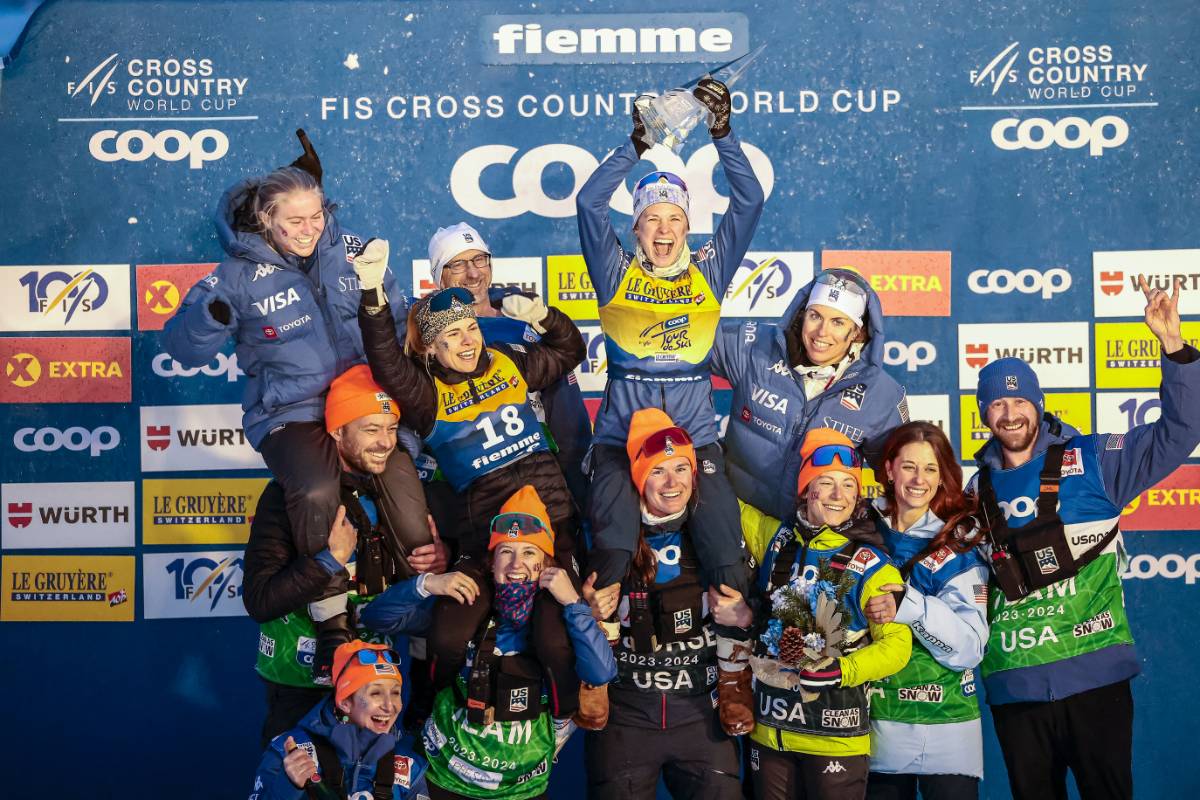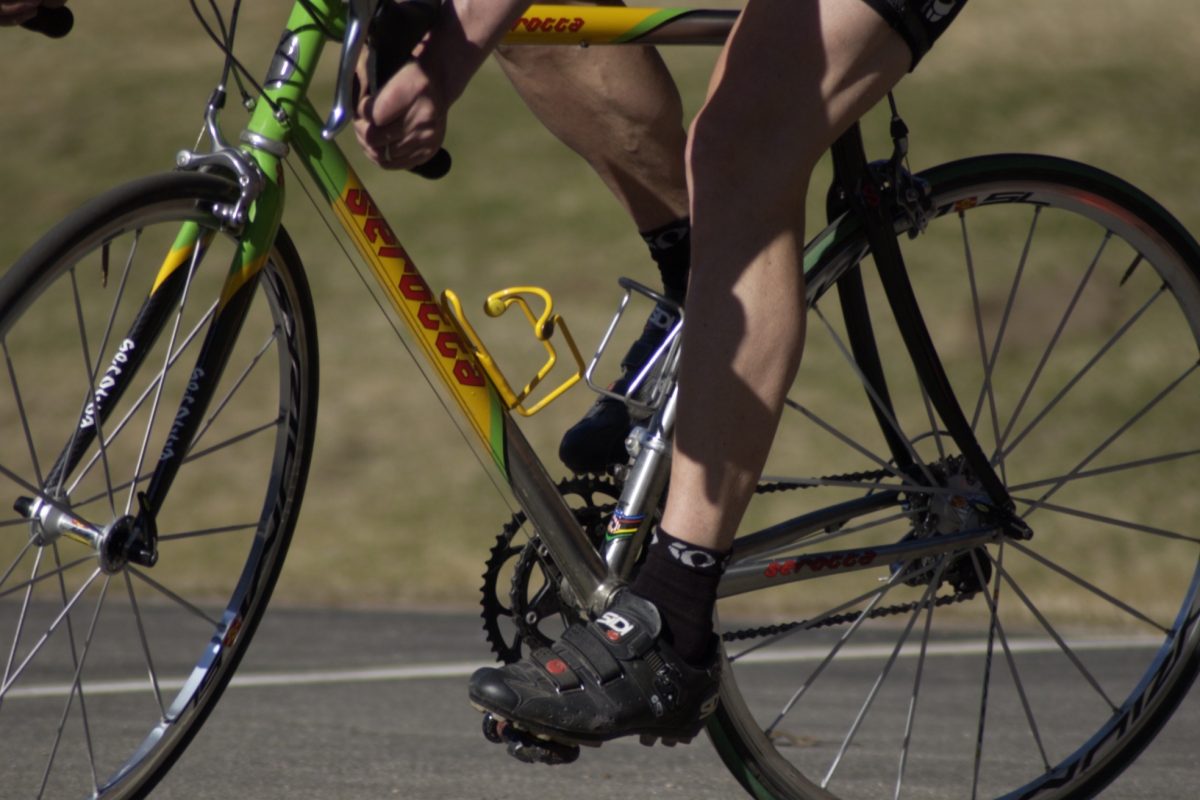
Fort Kent is only 50 miles from Presque Isle, but competitors in the biathlon World Cups were greeted with an entirely different environment when the circuit picked up and moved northward on Monday.
Swirling winds and grinding courses were the challenges in Presque Isle; frigid temperatures and one massive hill welcomed athletes in Fort Kent.
On the Canadian and American teams, members hail from locations across the entire continent—from Lake Placid and Quebec to Alberta and Alaska—so it makes sense that the shift in conditions would lead to a shuffling in results.
After being led all last week by Lowell Bailey (USA) in Presque Isle, it was Scott Perras (CAN) taking over the mantle of top North American biathlete in the 10 k sprint in Fort Kent.
Skiing through temperatures that struggled to break zero degrees Fahrenheit, Perras missed just one shot over two stages to race to 30st place—the best World Cup result of his career.
Bailey followed in 31st, with two penalties, with Jean Philippe Leguellec in 36th, with two misses. After skipping last weekend’s races to recover from an illness, American Tim Burke was 47th; he hit his first seven shots before crumbling and missing his last three.
“The first time I missed, I knew I missed just a little bit on the right,” he said afterwards. “The last two shots felt really good—I was just shocked.”

With a massive hill just 250 meters out of the start, the 3.3-kilometer Fort Kent sprint loop was every bit as difficult as anticipated, Bailey said. He called the initial climb possibly “the biggest hill I’ve ever seen on a biathlon course.”
“It’s one of those climbs where you get to where normally you would finish a climb, and you look up and you’re only halfway,” he said. “It’s brutal—there’s nothing else to say about it.”
The temperature was three degrees at the start of the race, which made the going even tougher. So tough, in fact, that American Jeremy Teela—like Burke, dealing with sickness—elected not to start the race after completing his warm-up.
Normally, Teela’s scratch would have opened up a spot for another American to compete, and the team indeed had selected an alternate—23-year-old Russell Currier, who hails from nearby Stockholm.
Currier had been informed by U.S. team staff that he’d have the day off if he didn’t hear anything before 9:40, with the race starting at 11:30. But Teela’s decision came so late that the Americans were unable to reach Currier after trying his home and cell phone, and the start spot went unused.
“That was a pity for him, for sure; he would have loved to race here,” said Per Nilsson, the head coach of the American team—noting that next time, he would have the alternate on site. “This is unique—I’ve never been [where] somebody’s called in [so] close.”
Despite a home crowd that didn’t hit estimates – a rough tally pegged the number of spectators at no more than 500 – the Americans still qualified all four of their starters for Saturday’s pursuit, led by Bailey.
While his 31st place was respectable, Bailey still couldn’t hide his frustration at his result in Fort Kent—especially after notching a 16th in the pursuit in Presque Isle last week.
The race came down to a miss on Bailey’s final shot of the day, which could have cost him as many as 10 places.
“I went for it, and it would have been nice to hit that,” he said. “I think I just got ahead of myself, mentally. I was sort of leaving the range before I took that last shot, I think.”
While Perras’s result was only one spot better than Bailey’s, the Canadian had a little more to be excited about.
In the sprint in Presque Isle last week, Perras was a discouraging 61st out of 72 starters, even though he racked up just two penalties—not a good sign leading into World Championships in March.
On Thursday, though, Perras’s shooting was even better—he had just one miss—and more crucially, his ski speed was competitive. He had the 37th-fastest course time out of 71 starters—24 spots better than in Presque Isle—including a final lap that was the 15th-best.
Afterwards, Perras said that he is slowly getting out of some volume training that he did the week before Presque Isle, in Canmore.
“It was a lot of slow stuff. To get everything firing again takes some pretty hard workouts,” he said.
After hitting 31st-place twice over the course of his career, Thursday was the first time that Perras had cracked the top 30.
“Finally, it’s three-zero,” he said.
Burke, meanwhile, will have to wait a little longer for his form. He said he finished his last round of antibiotics Thursday morning, and the sprint in Fort Kent was his first World Cup since competing in Italy three weeks ago. His speed on skis was not where it normally is—close to the top 10—but Burke was optimistic that he could be ready in time for World Championships.
“For sure, I’m pretty far behind right now—I haven’t had really hard training in three weeks,” he said. However, he added, “I feel like [in] another three weeks, I can get there pretty quick.”
Nathaniel Herz
Nat Herz is an Alaska-based journalist who moonlights for FasterSkier as an occasional reporter and podcast host. He was FasterSkier's full-time reporter in 2010 and 2011.



